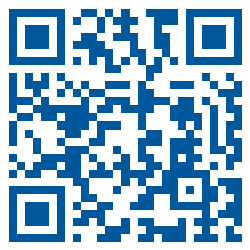
 Medical Examiner Officer in London inLondon
Medical Examiner Officer in London inLondon PUBLISHED MON 13 JAN 2025 Jump to job information section
Job description
To support Medical Examiners in their role in scrutinising the circumstances and causes of death. To be a point of contact and source of advice for relatives of deceased patients, healthcare professionals, H.M. Coroner and the registration services.
The Medical Examiner Office at Guy's and St Thomas' Hospital scrutinises the deaths of all adult and paediatric patients at the Trust and all non-acute deaths in the boroughs of Lambeth and Southwark.
The Medical Examiner system recently became a statutory requirement in England and Wales. This is an exciting time to join the Medical Examiner team at Guy's and St Thomas' as the exact form of the service is still being shaped and the successful candidate would be able play an important role in contributing to this.
You will be based at the Medical Examiner Office located at St Thomas' Hospital, working alongside the Duty Medical Examiner for that day, the Lead Medical Examiner Officer, Medical Examiner Officers, and team of Bereavement Administrators. There may be a requirement for occasional cross-site working with travel between the Guy's and St Thomas' sites (and any satellite inpatient units where the occasional need arises).
The usual start time will be 08:00 hours (Monday to Friday) but we can consider slight changes to working hours, which can be discussed at interview. There is also the option to take this as a part time role, with Wednesday as the non-working day.
The successful applicant may start immediately.
About us
Please see attached job description and person specification for full information.
To act as an intermediary between the bereaved and clinicians to establish and resolve any concerns relating to a patients death. Work with Medical Examiners to aid them in their responsibility for overseeing the death certification process for all deceased patients in the organisation.
To establish the circumstances of individual inpatient deaths by performing a preliminary review of medical records to identify relevant clinical and circumstantial information, sourcing additional details where required, for scrutiny by the Medical Examiner.
To assist in highlighting cases for assessment by the Structured Judgement Review team (SJR), Child Death Overview Panel (CDOP), Clinical Governance teams and the Learning Disability Review Teams (LeDeR).
To perform a preliminary review of all non-acute deaths referred to the Medical Examiner Office. Identifying relevant clinical and circumstantial information, liaising with primary care colleagues and general practitioners to source additional information where required, to enable scrutiny by the Medical Examiner.
To discuss cases with patients next of kin/representatives, explaining causes of death and medical terminology to them, where appropriate commensurate with your level of clinical knowledge.
To refer patients to H.M. Coroner for further investigation on approval by the Medical Examiner.
Maintain an awareness of the diverse needs of users of the medical examiner system to ensure equality to any particular group defined by sex, race, religion, ethnicity, sexual orientation, gender reassignment or disability.
If you're interested in this role but you have questions or you're not yet ready to apply, then please book a quick call with us and we'd be happy to answer any questions you have and tell you more about the role.
Requirements
See the job description for full role requirements.
Benefits
Benefits are provided by the employer and will be confirmed during your application.
A quick tap lets us tune future job matches for you


Scan with your phone to return to this page later.